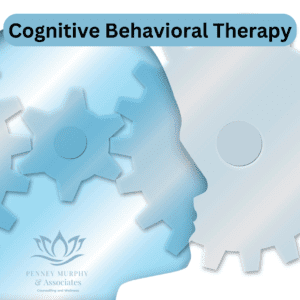
by Nancy Kearnan, Registered Counsellor
What is Cognitive Behavior Therapy?
Cognitive Behavior Therapy (CBT) is a widely practiced psychological treatment that focuses on the connection between thoughts, feelings, and behaviors. Developed in the 1960s by psychologist Aaron Beck, CBT’s focus is on the idea that negative thought patterns can lead to emotional distress and maladaptive behaviors. By addressing and restructuring these thoughts, individuals can improve their mental health and well-being.
At the core of CBT is the belief that our thoughts influence our emotions and actions. For example, a negative thought such as “I always fail” can lead to feelings of hopelessness and behaviors like avoiding challenges. CBT helps clients identify these cognitive distortions and replace them with more balanced, realistic thoughts. Techniques often include cognitive restructuring, mindfulness practices, and behavioral activation.
CBT is goal oriented. Therapists work collaboratively with clients to set specific objectives and develop practical strategies to achieve them. This makes CBT an effective treatment for a range of issues, including anxiety, depression, PTSD, and phobias.
One of the significant advantages of CBT is that numerous studies have demonstrated its efficacy. It also equips clients with tools they can use long after therapy ends, fostering a sense of empowerment and resilience.
In summary, Cognitive Behavior Therapy is a powerful therapeutic approach that helps individuals break free from negative thought cycles, paving the way for healthier emotional and behavioral patterns.

